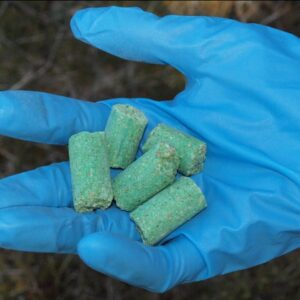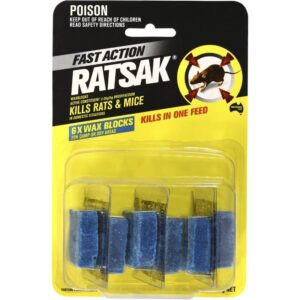Keeping you informed
Newsletter July 2021
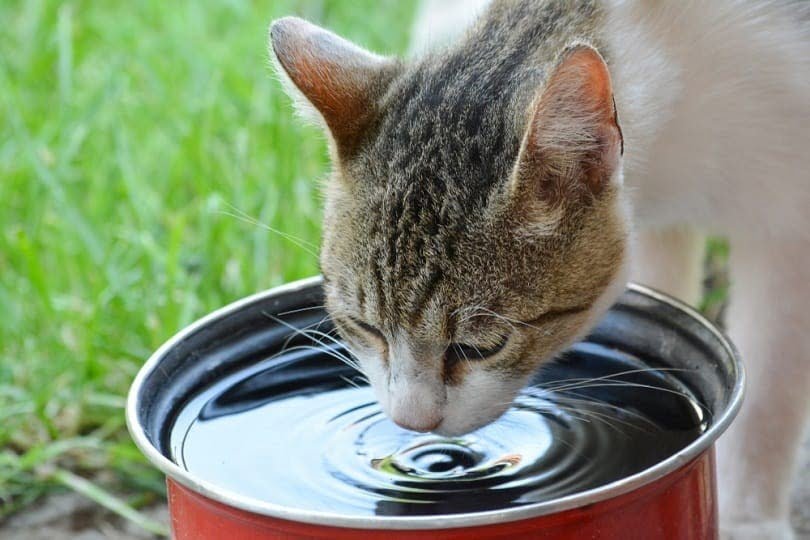
Beware of Poisonous Baits in our Area
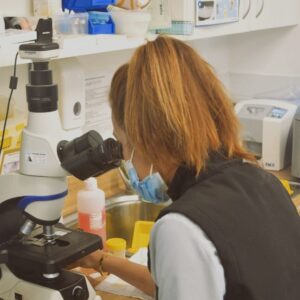
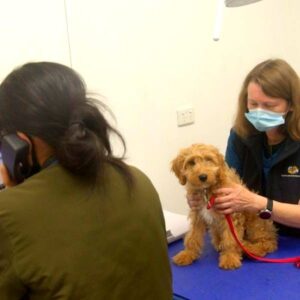
By the end of July 2021, Sydney will have been in lockdown for 5 weeks while our country’s vital vaccination roll-out gathers momentum.
The local council has advised on their website that poisonous baits have been laid in multiple locations including, Irish Town Grove (located behind Turramurra Vet). These rabbit baits (pindone) can cause excessive bleeding and are disguised in diced carrots coated with a green dye and can be dangerous to both pets and children if ingested. If you think your pet has ingested anything suspicious, then our vets can induce vomiting if your pet comes in quickly. See our article below on Pet Poisons in the Environment by Dr Gretta for further information.
As an essential service, Turramurra Veterinary Hospital is still open and conducting contactless veterinary consultations to ensure our local pets remain healthy and happy.
Under the current NSW Health advice and to protect our staff and local community, unfortunately clients are not currently permitted indoors, but your pets are, so after a handover to our animal-loving nursing team, our vets are doing consultations on the phone to remain in contact with you during your pet’s visit.
Lockdown can be a great opportunity to bond with our pets, and in particular, address some of the problem behaviours that may have developed. Our pet behaviour consultant, Katie Bedrossian, is available for consultations via Zoom by booking in with our reception team on (02) 9988-0198. Have a read of Katie’s article on Tug-o-war in our behaviour corner section.
Pet Poisons in the Environment
Author: Dr Gretta Howard – Senior Veterinarian
Baits are used frequently in the outdoor environment to control unwanted pests such as snails, rats, rabbits and foxes, but sometimes domestic pets and wildlife become affected by these poisons too. Poisons that are designed to kill these pests, are also dangerous for cats and dogs, as they may be easily consumed on a passing walk, sometimes, without the owner even being aware. In fact, in the majority of pets affected by rat bait, the owner has no idea where the source of the poison came from.
What do I do if I think my pet may have ingested poison?
The sooner your cat or dog is presented to the vet, the sooner we can attempt decontamination, by making your pet vomit (if poison was ingested in the previous 3 hours), performing a gastric lavage (stomach pumping) and providing an antidote or treatment to reduce the risk of death. If you have a sample of the product ingested, or know the name of it, inform the vet so we can treat your pet appropriately.
Click on the link to read the full article on poisons in the environment.
The Benefits of Playing Tug-o-War with your Dog
Author: Katie Bedrossian – Pet Behaviour Consultant
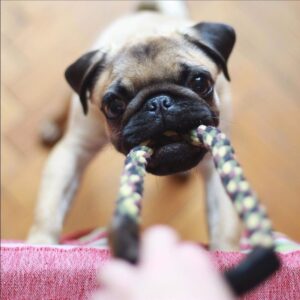

Dogs love to tug, whether it is a puppy tugging on your clothes or two dogs tugging on a prized toy.
But, did you know that there are many benefits for your dog playing tug?
1. Increases the bond with your puppy – Tug-o-war is one of the best games to increase the bond you have with your dog. You have one end, they have the other, the game has to be shared and creates positive emotions and fun is had by all.
2. Builds confidence – If you have a nervous or anxious dog, Tug-o-war can help them grow in confidence in other areas. It is also a great way to add positive association and greater movement to a situation that would normally make them anxious.
3. Releases mouth tension – Mouth tension is a term that relates to your dog’s desire to use their mouth on things. With some dogs if they don’t release mouth tension through playing Tug-o-war, they release it through chewing items, mouthing people or destroying things in your garden and home.
Click here to read the full article on puppy tug-o-war.
Pet Of The Month
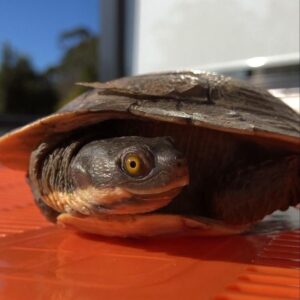
Norman, a Murray River Turtle, was attacked by a dog and brought to our hospital by a member of the public. Fortunately, she sustained no major injuries, and was assessed by Dr Tee Brown, who is experienced in exotic animal medicine and surgery. Norman was started on a course of antibiotics for a skin infection and some ‘no water’ time to treat ulcerative shell disease, also known as ‘shell rot’. Norman is expected to make a full recovery and will hopefully reach the estimated life expectancy of 50 years!
Staff Profile: Rebecca Evans – Clinical Nursing Manager
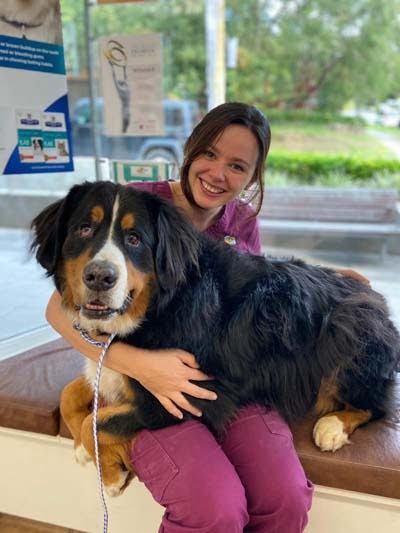
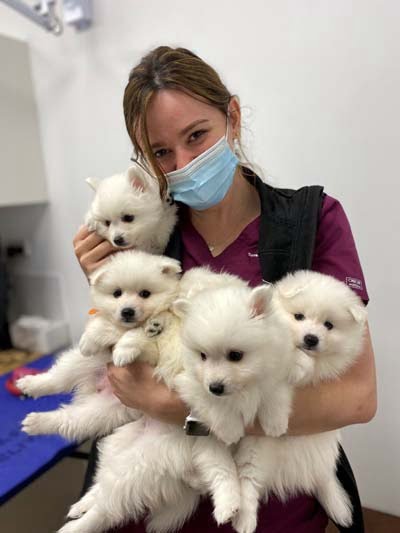
What were the reasons you chose to pursue veterinary nursing?
I chose to pursue Veterinary Nursing straight out of high school as I had always loved caring for my own pets growing up and wanted to help other people and their pets. The idea that as you help animals, you’re also supporting the humans attached always resonated with me. 10 years into my career, I continue to love being a nurse as it allows me the opportunity to care for the most special family members.
What does your role as Clinical Nursing Manager involve at Turramurra Veterinary Hospital?
My role as Clinical Nursing Manager involves ensuring all our furry patients continuously receive copious amounts of cuddles and love, as well as the highest level of care possible. I also liaise with the entire team to ensure the days run smoothly and the more complex patients receive everything they need. I also mentor and guide our junior nurses throughout their training.
Click here to read the full article.
Feline Friends
Dr Jim and Dr Gretta adopt Neechee – a diabetic cat!
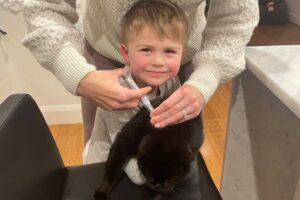
When Neechee’s owner had to be hospitalised and couldn’t keep her little black cat anymore, the Thompson family decided to adopt her. Neechee needs to be given an insulin injection twice a day so is perfect for a family with two vets. Their two boys, Hamish and Marcus, love to help out and give Neechee lots of cuddles during her injections and she gets a Fit n Flash treat each time, so being a real foodie, barely notices the needle.
There are lots of cat owners that learn to inject their cats with insulin, even if they have had no prior experience with giving injections. It’s a skill that can be learned by almost anyone. Read our article on feline diabetes to find out a bit more about what to look out for.
Click on the link to read the full article: https://www.turramurravet.com.au/vet-articles/dr-jim-adopt-diabetic-cat/
Innovations: Tonometry – How to Read an Animal’s Eye Pressure
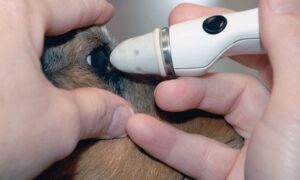
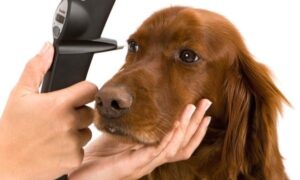
You may have had your eye pressures tested at the optometrist, which checks for glaucoma (increased intra-ocular pressure), a dangerous eye condition where the pressure inside the eye builds up and can injure the eye permanently and even cause blindness. This can happen in dogs and cats too, but how do vets measure the eye pressure in our pets?
The tonometer is a special instrument which is used to check the eye pressures. First, some local anaesthetic drops are placed into the pet’s eyes to numb the area, then the pen-like tonometer lightly touches the cornea, to see how ‘spongy’ it is. The procedure is completely painless and well-tolerated. The firmer the eyeball, the higher the pressure, which can be an indication of glaucoma developing. The spongier the eyeball, the lower the pressure, which can occur in inflammatory conditions of the eye, such as uveitis.
If the eye pressure is elevated and is detected early, medication can be prescribed to reduce the risk of permanent eye damage and blindness. Sometimes, referral to a veterinary ophthalmologist (specialist) may be recommended for further assessment.
We really appreciate your patience and co-operation during this period. Remember to always send any feedback to our business manager, Elyse Staber, via email to manager@turramurravet.com.au as we always strive to improve our service.
Warm regards, your locally family-owned Turramurra Veterinary Hospital team.

